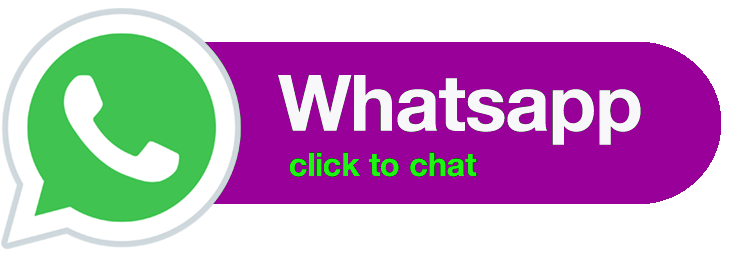PENINGKATAN KOMPETENSI DIGITAL GURU DAN SISWA MELALUI IMPLEMENTASI PLATFORM E-LEARNING: STUDI KASUS DI SMPN 25 KOTA BENGKULU
Keywords:
Digital competence,, e-learning, KKN MBKMAbstract
The Merdeka Learning Campus Community Service Program (KKN MBKM) at SMPN 25 Bengkulu City aims to improve the digital competence of teachers and students through the implementation of e-learning platforms such as Canva, ChatGPT, Quizziz, and CapCut. This program uses a Participatory Action Research (PAR) approach that emphasizes the active participation of participants in all stages of the activity. The series of activities included an infographic-making workshop for teachers, training on the use of ChatGPT and Quizziz in developing teaching materials and evaluations, and creative classes for students in making digital videos and posters. Finally, a poster design competition with the theme “Save Our Earth” was held for students in grades VII and VIII. Evaluation results showed significant improvements in digital skills, creativity, and teacher and student confidence in creating technology-based learning content. The findings support that technology-based participatory training can shape a more innovative and flexible learning culture.
References
Ismail, H. (2019). Penggunaan Triangulasi dalam Metode Penelitian Kualitatif Pendidikan. Jurnal Ilmu Pendidikan, 17(2), 134–141.
Prasetyo, A., & Maryani, E. (2020). Pemanfaatan Canva dalam Peningkatan Kualitas Media Pembelajaran Visual. Jurnal Inovasi Teknologi Pendidikan, 7(1), 54–62. https://doi.org/10.21831/jitp.v7i1.28291
Purwanto, A., Pramono, R., Asbari, M., Hyun, C. C., Santoso, P. B., & Putri, R. S. (2020). Studi Eksploratif Dampak Pandemi COVID-19 terhadap Proses Pembelajaran Online di Sekolah Dasar. EduTeach Journal of Educational Technology, 1(2), 1–12.
Putra, R. A., & Sari, I. R. (2020). Pemberdayaan Guru melalui Pelatihan Berbasis Teknologi Partisipatif. Jurnal Pengabdian Kepada Masyarakat, 5(1), 45–52.
Sari, D. K., & Handayani, F. (2020). Efektivitas Penggunaan Quizziz dalam Meningkatkan Hasil Belajar Siswa di Masa Pandemi. Jurnal Pendidikan Informatika dan Sains, 9(1), 45–52.
Susanti, D., & Arifin, R. (2020). Implementasi Participatory Action Research dalam Pengembangan Sekolah Inovatif. Jurnal Pendidikan dan Pengajaran, 53(3), 213–222.
Susilana, R., & Riyana, C. (2019). Media Pembelajaran: Hakikat, Pengembangan, Pemanfaatan, dan Evaluasi. Bandung: CV. Wacana Prima.
Utami, P. D. (2019). Pemanfaatan Kecerdasan Buatan dalam Inovasi Pembelajaran. Jurnal Teknologi Pendidikan dan Pembelajaran, 7(2), 143–150.
Wijaya, A. (2020). Pengembangan Kreativitas Siswa Melalui Pembelajaran Berbasis Proyek Menggunakan Aplikasi Editing Video. Jurnal Pendidikan Multimedia, 3(2), 80–88.
Kurniawan, E., & Mustadi, A. (2019). Peningkatan Kompetensi Guru melalui Pelatihan Berbasis Teknologi Informasi. Jurnal Pendidikan dan Pembelajaran, 26(2), 109–118.
Downloads
Published
Issue
Section
License
Copyright (c) 2025 Alystia Ananda Harjono, Putrie Aulia, Hafizah Andriani, Oki Caniago

This work is licensed under a Creative Commons Attribution-ShareAlike 4.0 International License.
LICENSE TO PUBLISH:
1. License
Authors who publish with Insan Cendekia agree to the following terms: Authors retain copyright and grant the Insan Cendekia right of first publication with the work simultaneously licensed under the Creative Commons Attribution-ShareAlike 4.0 International (CC BY-SA 4.0) license, that allows others to share (copy and redistribute the material in any medium or format) and adapt (remix, transform, and build upon the material) the work for any purpose, even commercially with an acknowledgement of the work's authorship and initial publication in Insan Cendekia.
2. Author’s Warranties
The author warrants that the article is original, written by stated author/s, has not been published before, contains no unlawful statements, does not infringe the rights of others, is subject to copyright that is vested exclusively in the author and free of any third party rights, and that any necessary written permissions to quote from other sources have been obtained by the author/s.
3. User Rights
Under the Creative Commons Attribution license, the author(s) and users are free to share (copy, distribute and transmit the contribution).
4. Rights of Authors
Authors retain the following rights:
- copyright, and other proprietary rights relating to the article, such as patent rights,
- the right to use the substance of the article in future own works, including lectures and books,
- the right to reproduce the article for own purposes, provided the copies are not offered for sale,
- the right to self-archive the article.
5. Co-Authorship
If the article was prepared jointly with other authors, the signatory of this form warrants that he/she has been authorized by all co-authors to sign this agreement on their behalf, and agrees to inform his/her co-authors of the terms of this agreement.
6. Termination
This agreement can be terminated by the author or Insan Cendekia upon two months’ notice where the other party has materially breached this agreement and failed to remedy such breach within a month of being given the terminating party’s notice requesting such breach to be remedied. No breach or violation of this agreement will cause this agreement or any license granted in it to terminate automatically or affect the definition of Insan Cendekia.
7. Royalties
This agreement entitles the author to no royalties or other fees. To such extent as legally permissible, the author waives his or her right to collect royalties relative to the article in respect of any use of the article by Insan Cendekia or its sublicensee.
8. Miscellaneous
The Insan Cendekia will publish the article, or arrange for its publication, provided that the editorial process is successfully completed and the journal or its sublicensee becomes obligated to publish the article. The Insan Cendekia reserves the right to edit the article for consistency in punctuation, spelling, capitalization, and style, as deemed appropriate.




